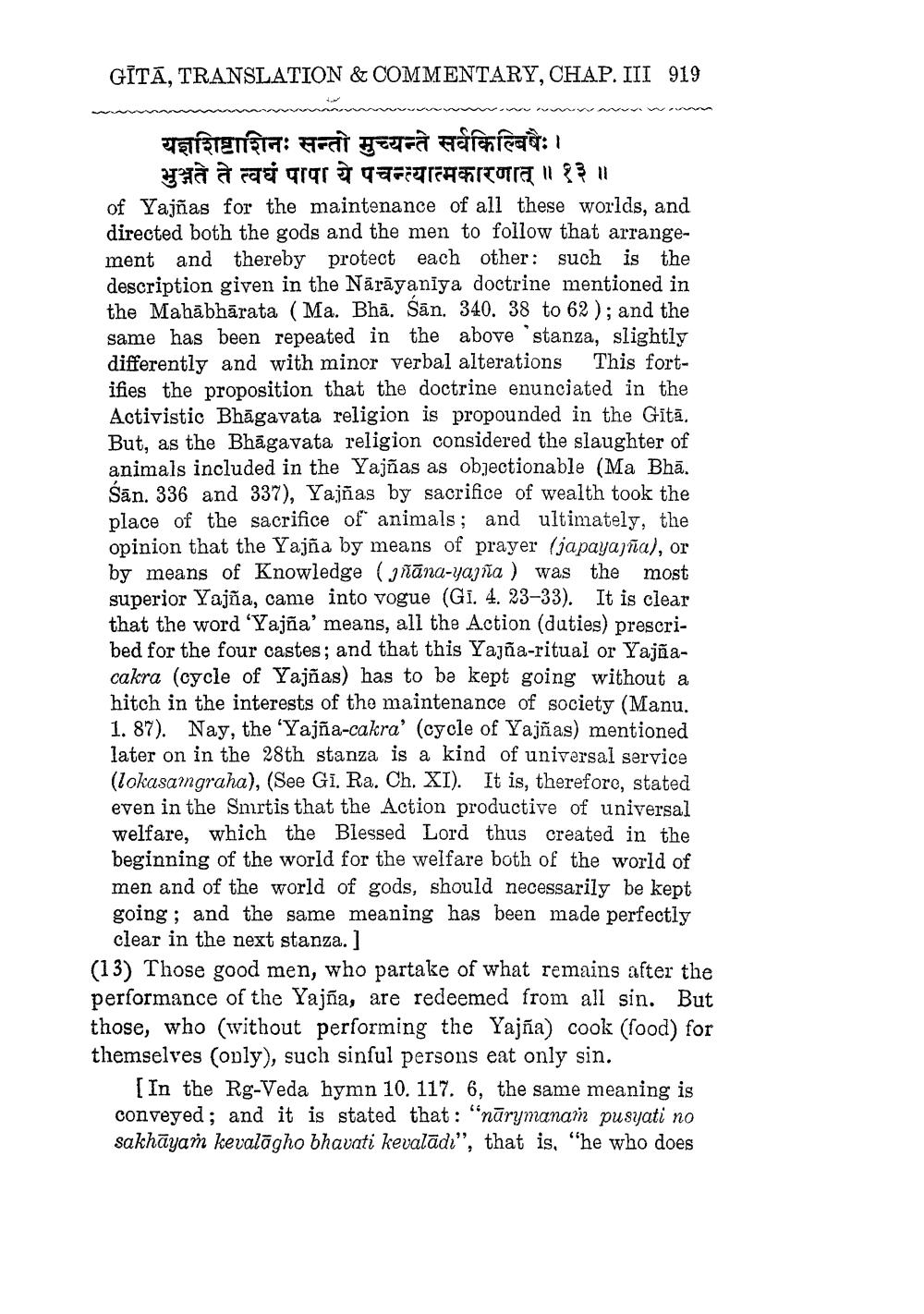________________
GĪTĀ, TRANSLATION & COMMENTARY, CHAP. III 919
यज्ञशिष्टाशिनः सन्तो मुच्यन्ते सर्वकिल्बिषैः ।
भुञ्जते ते त्वयं पापा ये पचन्त्यात्मकारणात् ॥ १३ ॥ of Yajñas for the maintenance of all these worlds, and directed both the gods and the men to follow that arrangement and thereby protect each other: such is the description given in the Nārāyaniya doctrine mentioned in the Mahabharata (Ma. Bhā. San. 340. 38 to 62); and the same has been repeated in the above 'stanza, slightly differently and with minor verbal alterations This fortifies the proposition that the doctrine enunciated in the Activistic Bhagavata religion is propounded in the Gita. But, as the Bhāgavata religion considered the slaughter of animals included in the Yajñas as objectionable (Ma Bhā. Śan. 336 and 337), Yajñas by sacrifice of wealth took the place of the sacrifice of animals; and ultimately, the opinion that the Yajña by means of prayer (japayajña), or by means of Knowledge (ñana-yajña) was the most superior Yajña, came into vogue (Gi. 4. 23-33). It is clear that the word 'Yajña' means, all the Action (duties) prescribed for the four castes; and that this Yajña-ritual or Yajñacakra (cycle of Yajñas) has to be kept going without a hitch in the interests of the maintenance of society (Manu. 1. 87). Nay, the 'Yajña-cakra' (cycle of Yajñas) mentioned later on in the 28th stanza is a kind of universal service (lokasamgraha), (See GI. Ra. Ch. XI). It is, therefore, stated even in the Smrtis that the Action productive of universal welfare, which the Blessed Lord thus created in the beginning of the world for the welfare both of the world of men and of the world of gods, should necessarily be kept going; and the same meaning has been made perfectly clear in the next stanza. ]
(13) Those good men, who partake of what remains after the performance of the Yajña, are redeemed from all sin. But those, who (without performing the Yajña) cook (food) for themselves (only), such sinful persons eat only sin.
[In the Rg-Veda hymn 10. 117. 6, the same meaning is conveyed; and it is stated that: "narymanam pusyati no sakhayam kevalāgho bhavati kevaladi", that is, "he who does




